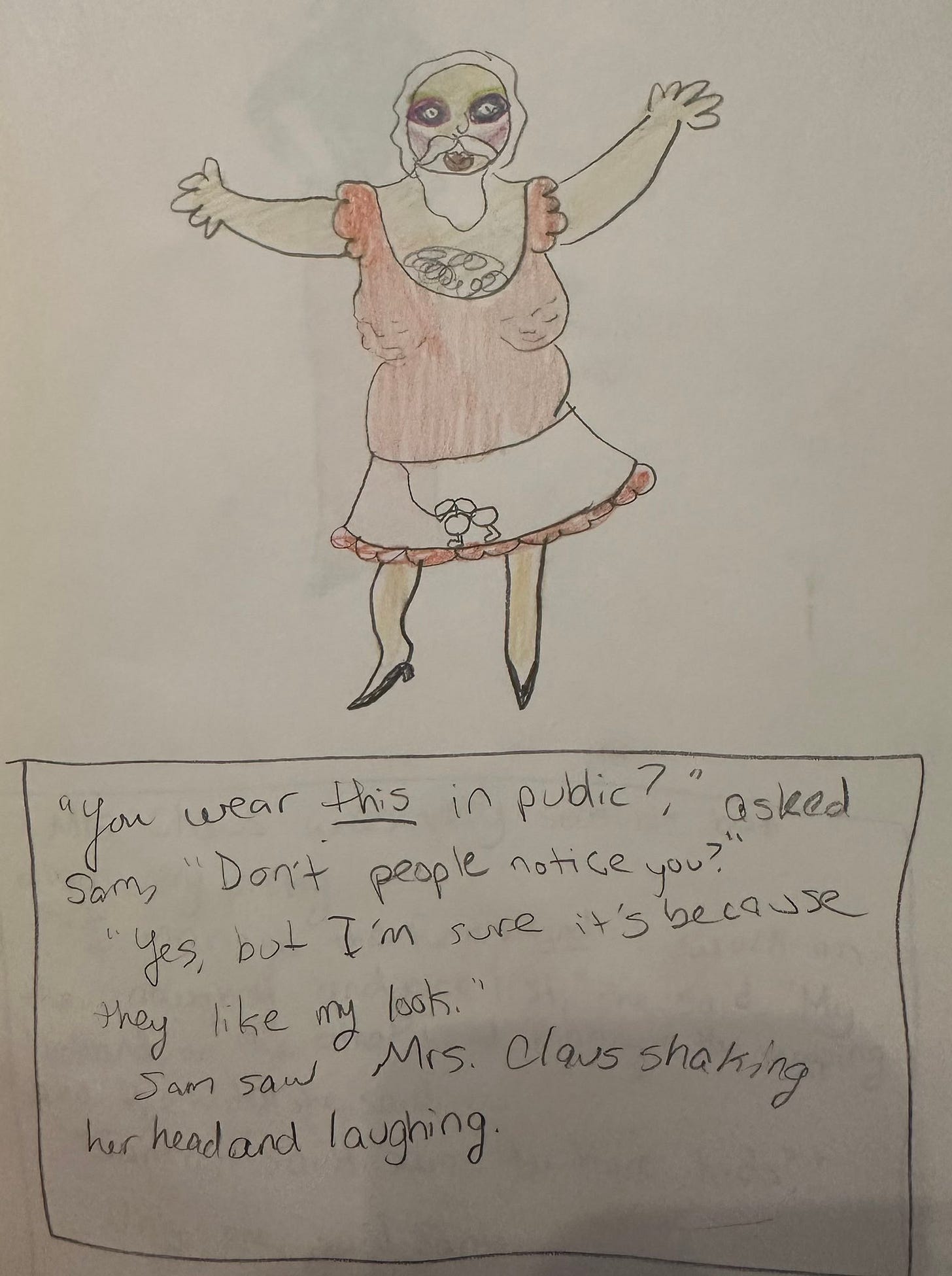How I Made Writing my Full Time Job As a Failed Author and Employee
After failing at almost everything, I found some success on Substack. Here's how!
Lately I’ve seen a lot of posts about writing, notes about writing, and passive-aggressive sub-notes about notes about writing. It seems there’s nothing writers enjoy doing more than writing about writing, especially if that talking involves resentment about other writers.
I actually wasn’t going to join in on this trend (as you’ll see later in this piece, I have thoughts on the “I need to write about the thing everyone else is writing about” phenomenon) but it actually came up as an anonymous submission to my new advice column (and by the way, at the end of this post there is a link to submit to the column.)
“What's your writing process?? I need to know your secret to writing daily high quality long form content.”
(Hey, they called my writing “high quality,” not me! Don’t yell at me!)
So, today I’m going to talk about writing. But rest assured I don’t do this often. See this article as one half autobiographical, one half self-help. I’ve experienced a lot of professional failure. I was cut from my college humor magazine after my first two articles. I am a failed novelist, failed tech worker who was fired a full five times over 13 years, and now full-time Substack writer (no, not the type of MLM-adjacent Substack writer who just writes about how to write and tries to sell you an e-course.) Am I the most famous and successful Substack writer of all time? No. But I started doing this in February, and I’m now the number three humor Substack on the main page, so I like to think I did something right.
I feel like I should at least provide some advice for how to make Substack work for you, and why Substack might be a better avenue for your writing than traditional publishing, by using my favorite example ever—myself. After all, I’m the only person (that I know of) who wrote this amazing story about cross-dressing Santa when I was eleven:
I will caveat this with the fact that I don’t think traditional publishing or legacy media is “bad” per se. I was published in Slate a few weeks ago. I’m glad I did it, and it was a good experience. But despite the article going viral, winding up on TikTok and hitting the top page of two separate parenting subreddits (I knew I’d circumvent my lifetime ban on Reddit somehow) it didn’t generate me even half the amount of money that a regular Substack article on an average day would. People joked that I “sold out” and “didn’t need the money anymore,” but it actually generated very little money. I still need the money!
As I’ve written about before, I published a book in my twenties with a real, big-girl publishing house. It netted me a small fraction of my current annual Substack salary—not nearly enough to live off—and did not lead to a second book (in fact, it led to my agent dumping me.) And I don’t say this as someone making millions on Substack—I still make less than I did when I worked in tech. But Substack has been considerably more lucrative for me than any form of traditional media, even when the traditional media in question is more prestigious or seemingly impressive. There’s something to that.
So, why did Substack work out for me (at least so far) while other avenues have either failed or been kinda so-so?
First of all, Substack is uniquely tailored to my exact writing style. I write every day. Writing to produce content 4-7 times a week is not hard for me. But you know what is hard for me? Being a perfectionist. I just can’t. Even when I sew clothing, there’s always some minor flaw that I just kind of ignore. I’ve been told repeatedly that “baking is chemistry” but I’ll be honest, I’ve never once actually measured out vanilla extract, sifted any flour, or waited for butter to reach room temperature. I even eyeball baking soda, and so far nobody has died. I like to do things quickly, and I don’t care if my work isn’t perfect (big shout-out to my followers who always notify me of the errant typo.) Of course, I want to produce high quality content, but it doesn’t take me multiple weeks to write an article.
Not everyone writes this way. Some people are much better suited to forms of media that involve much more perfectionism and meticulous detail, like epic fantasy novels. I attempted to do that exact thing, and wrote 700 pages of a book which I slowly realized was literally the first season of Game of Thrones. Shame on me. World-building is something I love in the abstract—I love Margaret Atwood’s work for this reason. But when it comes time for me to actually build a world, I keep defaulting to the last interesting world I saw. Take, for example, this passage I wrote in the aforementioned abandoned fantasy novel, where a playboy son of a lord admonishes his bodyguard for refusing to get his dick wet. It’s giving HBO!




